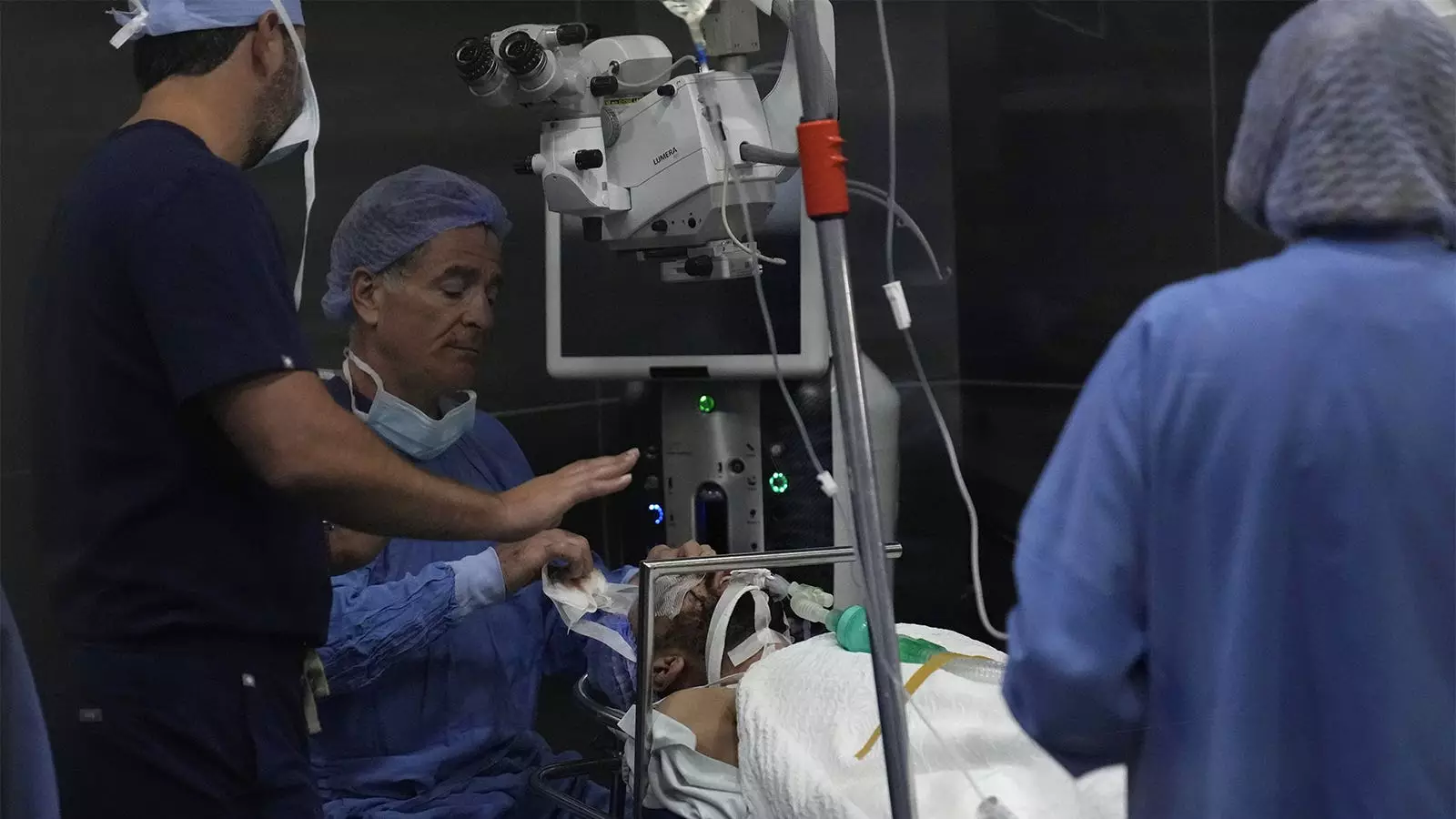In Lebanon, the recent detonation of civilian devices has plunged the healthcare system into an overwhelming crisis. Dr. Elias Jaradeh, an ophthalmologist and lawmaker, embodies the front-line struggle faced by medical professionals. These tragedies unfold against a backdrop of conflict and instability, where the health sector grapples with the aftermath of catastrophic events. The explosions, believed to be linked to tensions with Israel, have injured thousands and raised serious concerns regarding civilian safety amid the chaos of ongoing geopolitical conflicts.
Dr. Jaradeh’s relentless commitment to his patients is a telling reflection of the personal and professional toll this crisis has inflicted on healthcare workers. Reporting about his experience, he stated that he has often had little more than two hours of sleep amidst a nonstop flow of severely injured patients. In a time where medical resources are already stretched thin, his efforts highlight a growing desperation; while some patients maintain their sight, countless others face a lifetime of blindness. This reality brings forth an ethical dilemma for medical practitioners: how to cope emotionally while providing care during such a catastrophic surge of trauma.
Sight-related injuries, particularly those resulting from the explosions, offer a striking insight into how violence manifests in civilian life. Many victims are reported to be young men, women, and even children who were simply in the wrong place at the wrong time. The way these injuries occur — with victims looking directly at devices that exploded upon receiving notifications — adds a horrific layer to their suffering. Shrapnel, described as both metal and plastic, not only inflicts immediate harm but also leaves lasting scars on the psyche, raising questions about the future well-being of these individuals.
Dr. Jaradeh’s emotional struggle to contain his shock during surgeries reveals the profound impact such events have on medical professionals. It is an unfortunate reality that the medical community in Lebanon must navigate the choppy waters of psychological distress while attempting to heal physical trauma. As evidenced in past injuries caused by significant blasts in areas like Beirut’s port, the long-term implications of these violent events reach beyond physical therapy and into the realm of mental health care. The cumulative effect of violence has created a cycle of trauma that permeates the fabric of society.
In the face of overwhelming adversity, there are seedlings of hope planted in the resilience of the healthcare professionals. Dr. Jaradeh and his colleagues continue to tackle these enormous challenges with unwavering dedication. For them, saving even a fragment of a patient’s vision becomes a beacon of success in an otherwise dire situation. Their commitment is not only a reflection of professional duty but also of humanity’s innate desire to care for one another despite circumstances.
Lebanon’s medical practitioners have shown tremendous adaptability, having dealt with crises stemming from war, civil unrest, and now explosive violence. Their experience and expertise position them as vital players not only in treating the immediate aftermath of these tragedies but also in a broader context of rebuilding and healing the community. The medical community’s role is undeniably intertwined with recovery efforts, requiring both skillful medical treatment and compassionate, community-based healing approaches.
As the world watches these developments, it is imperative to acknowledge the multidimensional fallout of violence. The injuries sustained by civilians mandate urgent medical care but also highlight a desperate need for international dialogue and intervention regarding the root causes of such violence. The stories emerging from Beirut and other regions affected by this crisis are not just local narratives; they echo a call for global responsibility in addressing and alleviating suffering.
The tragedies witnessed by healthcare professionals like Dr. Jaradeh underscore the profound human costs of conflict. This awareness must spur a collective response from nations and organizations invested in peace and humanitarian aid, extending beyond traditional assistance to encompass systemic change in regions plagued by persistent violence. Only through a committed and compassionate approach to healing can society begin to transcend the cycle of trauma that has become all too familiar.


Leave a Reply